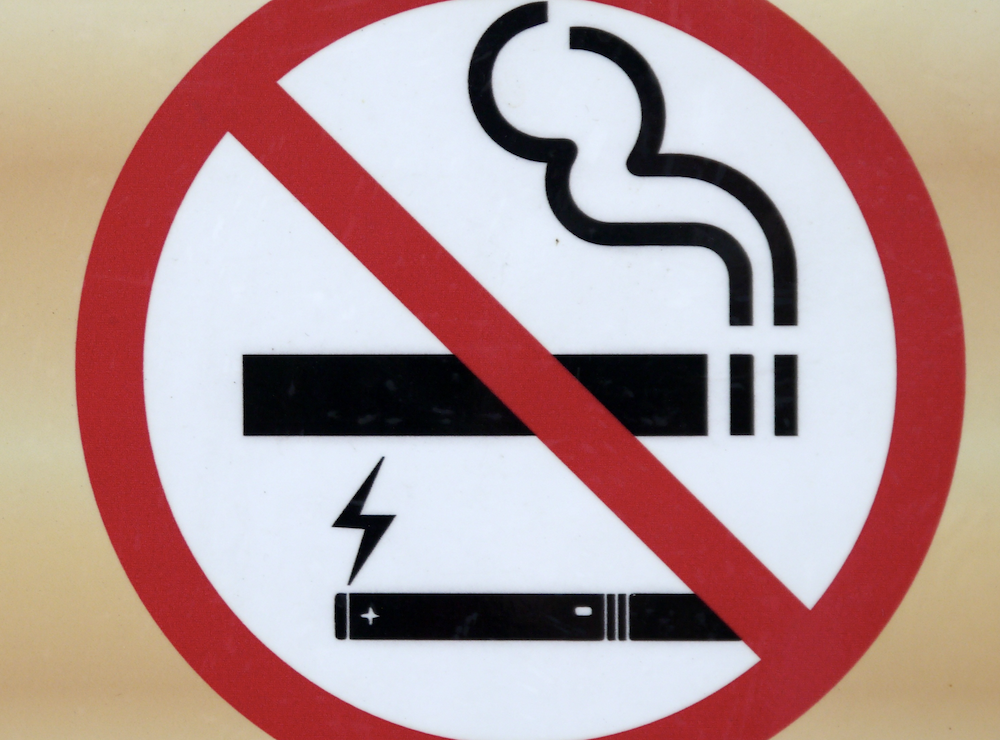If you thought Mexico’s drug war was only about illegal drugs like fentanyl or cocaine, you would be wrong. The country’s war on nicotine has just dealt people who smoke cigarettes or vape a serious blow. A law took effect on January 15 that imposes a total ban on smoking in all public places—you can now only smoke in your home or outdoors on private property. It simultaneously imposes tighter restrictions on nicotine vapes, which also cannot legally be used in public places.
There is also a total ban on the advertising, promotion and sponsorship of tobacco products. For shops that sell cigarettes, it is now against the law to openly display them.
World Health Organization Director-General Tedros Adhanom Ghebreyesus gushed about the new law on Twitter. “Bravo Mexico!” he said. “WHO welcomes such a bold move on tobacco control. We call on all countries to strengthen #NoTobacco policies and help us prevent 8 million deaths every year!”
Bans on smoking might be seen to have good intentions, like helping people quit. But what have bans on other drugs taught us? The reality is millions will not stop just because they can no longer light up in outdoor public spaces.
Such a far-reaching law effectively criminalizes people who smoke. Those who don’t comply face fines or up to 36 hours in jail.
“There are other problems with the tobacco law,” Dr. Roberto A. Sussman, the president of Pro-Vapeo México, told Filter. “It bans smoking in all workplaces, but a large proportion of Mexicans work in an informal, family-based economy using their own homes as workshops and stores. Is the government going to ban them from smoking in their homes?”
Such a far-reaching law effectively criminalizes people who smoke—disproportionately poor and from marginalized populations, including unhoused people who live in “public places.” Those who don’t comply face fines or up to 36 hours in jail.
“Smoking is not socially accepted in any social class or region in Mexico, but it is not seen with the same level of social disgust as in the US and other rich countries,” Sussman said. “Public health authorities have tried to ignite anti-smoking attitudes by transferring to Mexico the US prevailing narrative of the fight against Big Tobacco.”
How can such a massive ban even be enforced? Will police officers patrol thousands of miles of beaches, parks, plazas and streets to find and punish people?
Sussman believes that given the wide scope of outdoor “smoke-free” spaces, it is very unlikely that enforcement will be efficient, or even possible in many situations.
It’s therefore likely that enforcement, as with other drugs, will be selective, targeting certain populations and not others. That’s why racial justice advocates oppose the proposed ban on menthol cigarettes in the United States, for example.
There are fears that police will use the new law to extort bribes.
“A large proportion (if not most of) the Mexican public distrusts the government and regards its enforcing agents as corrupt,” Sussman added. So there are fears that police will use the new law to extort bribes.
Mexico isn’t alone in implementing a sweeping anti-tobacco law. New Zealand, for instance, is introducing a controversial incremental prohibition on cigarettes. But there, at least, vapes are supported as a far less harmful way for people to consume nicotine.
Mexican President Andrés Manuel López Obrador and his health minister are vehemently opposed to vaping and claim, unbelievably, that vaping is lethal and worse for you than smoking.
Accordingly, the importation and sale of vapes is illegal. But a vast unregulated market has existed in Mexico for over a decade, as a testament to people’s desire for a safer alternative to combustible tobacco. More than 1.2 million Mexicans—1 percent of the adult population—use vapor products somewhat regularly, according to a Global State of Tobacco Harm Reduction report.
Trying to impose a ban, creating yet more discrimination against the 15-17 percent of people who continue to smoke in Mexico, is futile and harmful. Instead, the government should legalize, regulate and promote vaping products, making them widely available at an affordable price. That would enable people to choose to quit cigarettes without the threat of criminalization.
In May of last year, President López Obrador received a prize for “outstanding tobacco control progress” from the World Health Organization, which has long been hell-bent on opposing harm reduction for nicotine, even as it supports it for other drugs.
“Laws, speeches, decrees and WHO awards do not change reality,” Sussman said.
Photograph via pxhere/Public Domain




